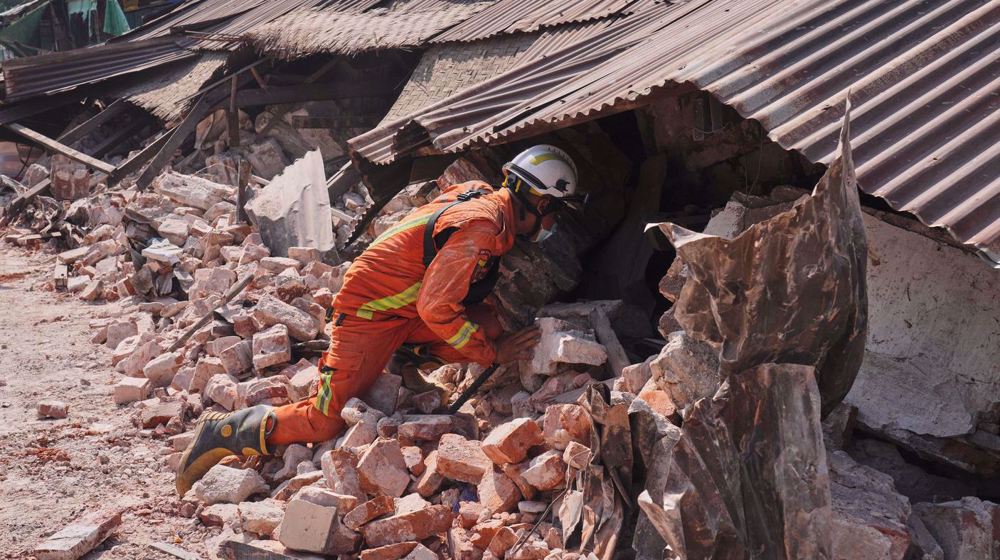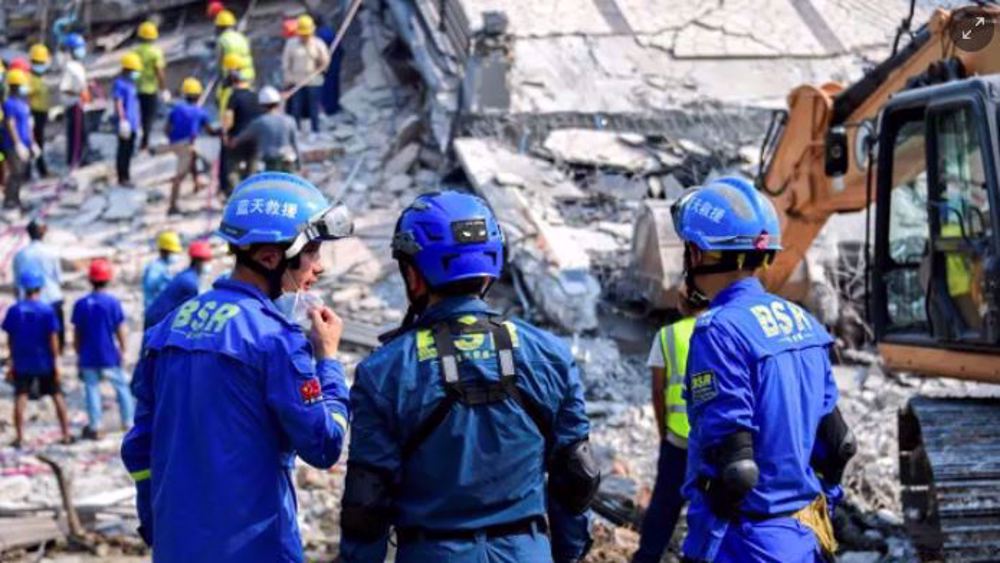Bangladesh executes opposition leader over war crime charges
Bangladesh has executed the leader of the South Asian country’s Jamaat-e-Islami Party for crimes committed during the country's war of independence with Pakistan in 1971.
According to Bangladesh’s Law and Justice Minister Anisul Huq, 73-year-old Motiur Rahman Nizami was hanged at a jail in the capital Dhaka “between 11:50 p.m. and 12:00 a.m.” local time on Tuesday, a week after he lost a final appeal to overturn the death sentence.
On May 5, the country’s Supreme Court rejected Nizami’s last appeal against the death sentence, which was endorsed by the court on January 6. In October 2014, he was found guilty by the International Crimes Tribunal over charges of murder, rape and orchestrating the killing of top intellectuals during Bangladesh’s war of independence from what was then East Pakistan in 1971.
Nizami refused to seek clemency from the country’s President Abdul Hamid, Huq added. Amnesty International had also previously called for an immediate halt to Nizami's execution.
Nizami is the fourth high-profile party member to have been executed since Bangladesh’s Prime Minister Sheikh Hasina set up a war crimes tribunal in 2009.
According to prosecutors, Nizami was responsible for establishing the pro-Pakistani al-Badr militia back in 1971, which allegedly claimed the lives of top writers, physicians and journalists in a war that, according to the government figures, killed up to three million people.

The Jamaat-e-Islami Party, however, strongly rejected the charges, calling them as false and aimed at removing the leadership of the party.
“Nizami has been deprived of justice. He's a victim of political vengeance,” said Maqbul Ahmad, the party’s acting leader.
Meanwhile, security forces remain on high alert across Bangladesh amid fears of violent protests over Nizami’s execution.
Nizami took over the leadership of the party in 2000. He also served as the agriculture minister from 2001 to 2003, and as the industries minister from 2003 to 2006.
In August 2013, the Supreme Court issued a verdict banning the registration of the Jamaat-e-Islami and preventing it from contesting in national elections. The leaders of the party are accused by the Bangladeshi government of backing Pakistan in the independence war.

Myanmar quake death toll passes 3,300: State media

Death toll from Myanmar quake rises to over 3,085

WHO warns Myanmar quake ‘top-level emergency’, seeks urgent funding
Harvard president says top university not to yield to federal demands over student rights
VIDEO | Hundreds of Israeli settlers storm Aqsa Mosque as West Bank raids claim another life
Israel-Meta nexus stifles pro-Palestine voices on Facebook, Instagram amid genocide
Iran gears up for largest trade event on upbeat mood
Leader: Indirect Oman talks ‘good’ in early stages but lack of trust 'remains' about other side
US slavery emancipation day celebrated in Washington
China calls for new Iran deal based on JCPOA; urges US to stop ‘maximum pressure’
IRGC: Iran’s military capabilities ‘non-negotiable’; national security ‘red line’









 This makes it easy to access the Press TV website
This makes it easy to access the Press TV website